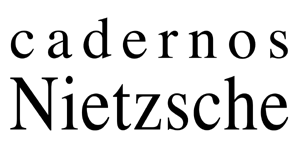Resumo em Português:
Resumo Este artigo oferece uma discussão sobre o legado crítico em torno da noção de grande política na obra de Nietzsche, questão que foi dominada por três posições: 1) Nietzsche é reduzido a um ironista subjetivista, não se atribuindo a ele nenhuma (ou pouca) relevância na teoria política; 2) ou bem é estigmatizado como precursor intelectual dos totalitarismos políticos; 3) ou bem pode apresentar-se como um genuíno pensador político, para além dos totalitarismos e capaz de fecundar algumas concepções democráticas da vida política. Nesse último aspecto, apesar das críticas de Nietzsche à modernidade e à democracia, é possível vê que sua obra defende a noção de uma democracia radical, dado o caráter antidogmático e perspectivista, que se mostra na defesa do caráter agonístico de toda relação de poder. Com efeito, porque há uma contingência insuperável de perspectivas particulares em busca de hegemonia, não se pode falar em nome de nenhum "grande outro" (Deus, Razão, homem, Nação). Por fim, advoga a noção de uma hermenêutica genealógica, que descobre a força de onde emerge a atividade fundamental: o interpretar transvalorador. Nessa transvaloração está inscrito um momento de domínio, que impulsiona o giro político da última fase do pensamento nietzschiano, inspirado na "fisiologia do poder", e que instaura o que Nietzsche denominou a "grande política".
Resumo em Inglês:
Abstract This article offers a discussion about the critical legacy around the notion of great politics in the work of Nietzsche, a subject dominated by three positions: 1) Nietzsche is reduced to a subjetctivist ironist, with no (or scarce) relevance to the political theory; (2) he is stigmatized as an intellectual forerunner of political totalitarianisms; (3) he is presented as an authentic political thinker, beyond totalitarianisms, and able to fecundate some democratic conceptions of political life. About this last aspect, in spite of Nietzsche's critics to modernity and to democracy, it's possible to see that his work defends the notion that the radical democracy, given his anti-democratic character and perspective, displays itself in defense of the agonistic character of each and every relation of power. Indeed, since there is an insurmountable contingency in particular perspectives in search of hegemony, we cannot speak in the name of "great other" (God, Reason, man, Nation). Eventually, the article advocates the notion of a genealogical hermeneutics that finds out the force from which emerges the fundamental activity: the transvaluating interpretation act. In this transvaluation is inscribed a time of domain, that urges the political turn of Nietzsche's thinking, inspired by the "power fisiology", bringing about what the philosopher called "the great politics".
